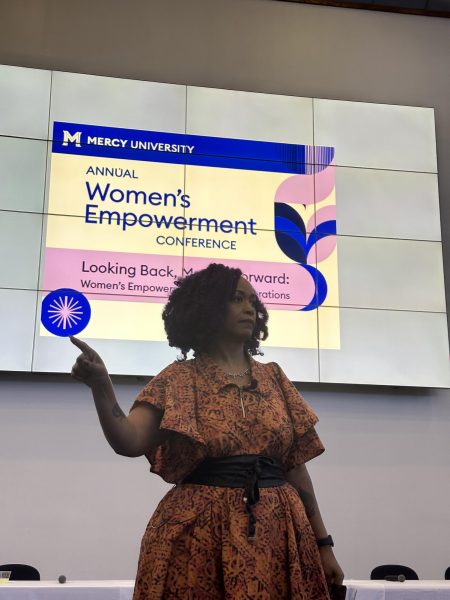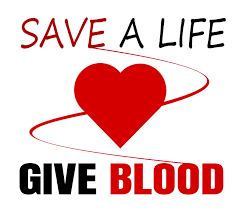Living with a Monster
While Nearly 37 million People Are Now Living with HIV, The Stigma Remains As The Biggest Killer
“The call of death is always there,” says Mercy College student who’s identity will be protected as “Sammy” when referring to the day he was diagnosed HIV- positive. “And (the tension) is always great.”
The tension of the monster, as Sammy calls it.
It was move-in day for Sammy who had just rented an apartment with his current girlfriend at the time, and his parents had just helped him to settle into his new place. After unpacking, Sammy remembers looking at his parents and hugging them without a reason. After, he closed the door, his mother told him please be careful.
Feb. 15, 2010 is “a day of tragedy” as expressed by Sammy – the day he was infected with the HIV virus.
Sammy remembers his last phone call with his physician – “will I ever be the old me?”
He still ponders it now.
“This is very hard to me, even thought in the present time I am happy and just living. It is not an easy disease to overcome. I always had a good amount of self-esteem on my shoulders, which i think gave me the strength to keep living, and to found a purpose of why to live.”
Sammy had been infected after having unprotected sex during a three-some with both a male and female shortly after he had moved into his new apartment.
Every day about 5,600 people contract HIV worldwide —more than 230 every hour. In 2014, 1.2 million people died from AIDS, according to the AMFAR: The foundation for AIDS Research. And yet answers on how to defeat this deadly virus are in dispute by experts, allowing those at risk or already infected to wander alone – with the monster.
Every semester, Mercy College held a wellness program focusing on deadly diseases such as cancer and HIV awareness by the division of the Student Affairs where they persuade people to do an HIV test to know his or her status. They also do long walks in oder to raise money for more research to stop the spread of this deadly virus.
HIV is often referred to as one of the major leading cause of death worldwide when speaking among the college student population, according to data collected by the Centers for Disease Control and Prevention.
Though all of Mercy campuses provide a no-cost HIV test, many of the students are afraid to get the test done because of the stigma it creates among the students and faculty.
Sammy remembers the first days he became ill. “I was in a stage of guiltiness and confusion and I even had suicidal thoughts because I didn’t want to exist any more. I was just not being.”
“For me having a new apartment was symbolic because it meant a new beginning, but when I contracted HIV it was very devastating and at time I would lie down in my bed and cry until my tears had enough.”
He began to watch videos about life and death. He needed motivation to live. He knew he had it but he was so ashamed and guilty that he did not leave his apartment to go to his appointments to get the medication that can potentially safe his life. He used to lie to people saying that he had a blood disease.
“When I finally decided to go to take my medication was after seeing a video on YouTube. The title of the video: These are The Days of Our Lives by Queen’s lead singer, Freddy Mercury. He died of AIDS and that was his last video before he died. That music video made me to stand up and fight the monster.. the monster living inside me.”
After being on medication for about four years, he was HIV undetectable, which means that he still has the virus but the amount is too low to see in a regular blood test.
“The hard part was to tell my parents and rest of my family. Of course my girlfriend left me, and when I tried to talk to people and go on dates, they would go with me but as soon as I tell them what I have, they would run away from me. That was not easy to take.”
He was sick of how people were treating him.
“It is either they give me sympathy, or they give me the boot.”
No one wants to be bothered, he remembers. “No one wants to touch you — don’t come over here, don’t get nowhere near her. And that’s what I used to be afraid of. The world is too cruel.”
All because of one terrible decision.
“It was only because I had unprotected sex. It’s not like I was shooting up drugs and anything like that. But at the time, we weren’t very educated about what could happen.”
Sammy was psychologically ill by the HIV virus. He explains that although he was on medication, things was very different and that was affecting him on his daily basis. Then during the last four year,s he had began seeing a psychologist to help him mentally after two suicide attempts. Sammy says that he never trusted anyone again after being infected with the virus.
HIV nowadays is an illness for some less urgent then it was before due to the amount of medication available in the market – people can now live longer and still be healthy.
HIV is considered to be a “young person’s disease” because most of young adults are active during that age range and the use of drugs and alcohol contribute to the less precaution.
Ernest Simons, 21, a senior at Mercy College, once thought she was HIV positive but luckily, the test results turned out negative.
“there were some rumors about my ex-boyfriend having the virus, and then he got tested and he was positive. I worried so much and I couldn’t stop crying, so I did my test believing that I was already infected, but it came out negative.”
When asked about if HIV people should know and tell partners their status, she said, “It’s a transition a lot of HIV positive people find traumatic. Their doctors are quite often the most long-term, if not the only, responsible and reliable adults in their lives.”
After that, event she became responsible and practicing safe sex with all of her partners.
“I did it because of me, and by me doing this at least is a step closer to stop the spread of the virus,” as she said.
Sammy believes the stigma can be worst than the actual virus.
“In this country and around the world, we do not take sex as something serious. Every time people are making jokes about sex and how badly they want to have a girl to do this and that, they aren’t realizing the consequences of their actions. And sadly those are the ones who judge you from having a disease that they can easily get,” he says. :HIV is not a gay disease, a dog disease or a monkey disease, it is a human disease and it can happen to you.”
One lesson Sammy says he has learned from this experience is that the virus does not always have anything to do with how morally good one is. Now his job is to prevent and educate future generations.
Sammy also believes the more the public hears about HIV awareness as an extremely serious illness and the more insurance companies cover the medications, the more help people will be willing to get and will get.
Yet there is a new pill in the market, called PrEP (Pre-exposure prophylaxis), which basically protects white blood cells and T- cells from the virus so that individual at risk doesn’t get infected. However, Sammy feels that knowing a partner’s status before sex should be the right thing to do.
Long term health is always in the back of his mind. Sammy adds,“I can be “okay” now but i do not know what long-term effects HIV can cause to me while in the body.
The National Institutes of Health— the largest source of research money — spends a small fraction on HIV compared with diseases such as breast cancer that result in as many of not only American lives lost but worldwide. The U.S. National Library of Medicine says, “ The first case of Alzheimer’s disease diagnosed in a person with HIV highlights the fact that long-time HIV survivors are starting to reach ages where their risk for Alzheimer’s increases.”
“Chronic HIV infection and amyloid deposition with aging may represent a ‘double-hit’ to the brain that results in progressive dementia,” according to the National Library of Medicine.
Mercy College often reminds its students to speak with a counselor, professor, classmate or friend if one is having a difficult time. However stigma is causing them to have fear and not to speak up.
The Centers for Disease Control and Prevention believes that the most substantial strategy for preventing HIV and AIDS is to educate yourself of how to be safe during sex. Despite the obstacles and challenges that Sammy has to deal with, he is a student at Mercy College in seek of a better future for him.
HIV is often seen and perceive wrongly by other people, he feels. There is a lot of silence and taboos in the world when it comes to certain topics.
Sammy adds “The call of death must be really great. The rest of us have no idea. They don’t ask you are you okay or why you are not eating. When a person cannot see anything else but they own little world, and not what others go throughout in life, it shows how selfish society can be.”
Experts believe that for every infected people with HIV, there are at least other symptoms such as depression, guilt and isolation.
Although Sammy feels there are many ways to answer whether or not he could have prevented his own tragedy from having unprotected sex, he answers by saying, “This is all thinking about something you cannot change,” adding, “Everyone who has experienced an infectious disease such as this one, that day over and over in their head becomes repetitive.
Sammy takes a religious approach when dealing with HIV by, “having faith in God,” and advises those who may have had or may have the virus to stay encouraged. He also tries to keep in mind, “You never know what someone is going through, and you can’t treat people any old way. A simple hello could be a change in somebody’s life.”
Sammy continued good health, indeed their family and friends, depends on his continued adherence to the same strict drug regimen that has kept him alive thus far. “I will keep taking my medicine,” as Sammy adds.
Now, Sammy works full time while going to college in the hope of becoming an architect. No one who meets him would doubt that he has the resources to achieve such a goal; for others, though, with different goals, and HIV status — no matter how easily controlled or concealed — isn’t so easily denied.
Sammy will like to adopt a children in the future and have a companion to share great moments with.
He pauses
“I am okay living with a monster, and that’s a really hard lesson learned.”

Miguel is a senior majoring in journalism and this is his second year on The Impact. Miguel decided to join such a great paper, because he feels now is...












